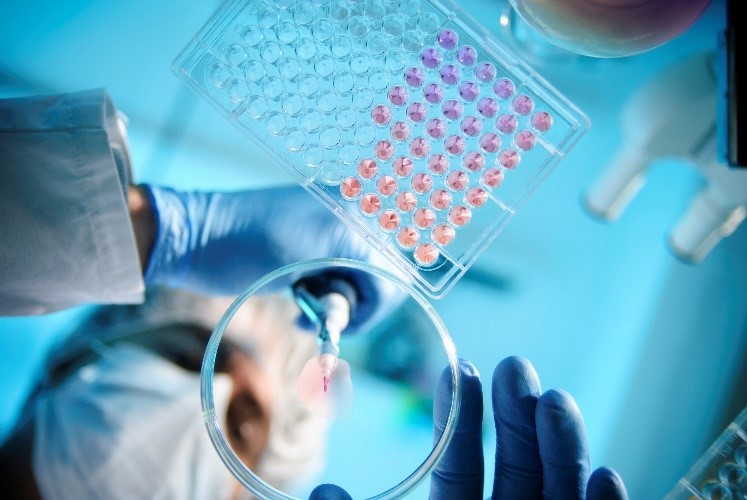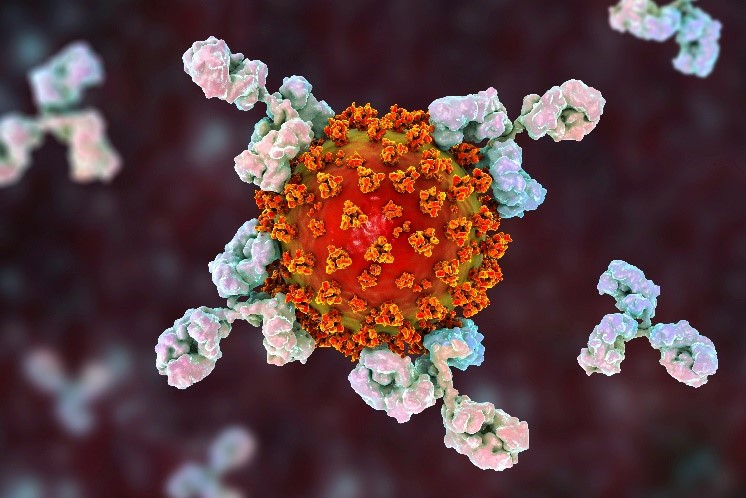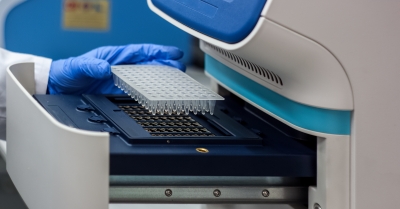Introduction Published Data What We Can Offer? Workflow Why Choose Us? FAQs Featured Services Featured Products
Accelerate Your Research and Development!
Are you currently facing challenges in developing effective therapeutic antibodies for B-cell malignancies, struggling with long development cycles, or seeking to enhance the efficacy of your lead candidates? Creative Biolabs focuses on resolving these obstacles. Our CD20 therapeutic development solutions enable the production of premium-efficacy, potent antibodies through sophisticated technological platforms and profound complement cascade proficiency, expediting your journey to clinical achievements.
Contact our team to get an inquiry now!
Introduction
The complement cascade constitutes an integral component of innate immunity, serving as the primary defensive barrier against pathogens. It is a cascade of over 30 proteins that, when activated, can tag pathogens for destruction, recruit immune cells to the site of infection, and directly lyse target cells by forming the Membrane Attack Complex (MAC). This lytic activity, known as complement-dependent cytotoxicity (CDC), is a powerful mechanism for therapeutic intervention.
CD20 is a non-glycosylated transmembrane protein expressed on the surface of pre-B and mature B lymphocytes. Its near-ubiquitous expression on these cells, while being absent from hematopoietic stem cells, makes it an ideal target for B-cell depletion therapy in conditions like Non-Hodgkin's Lymphoma (NHL) and certain autoimmune diseases. The pioneering anti-CD20 antibody revolutionized treatment by harnessing the complement system to eliminate cancerous B cells.
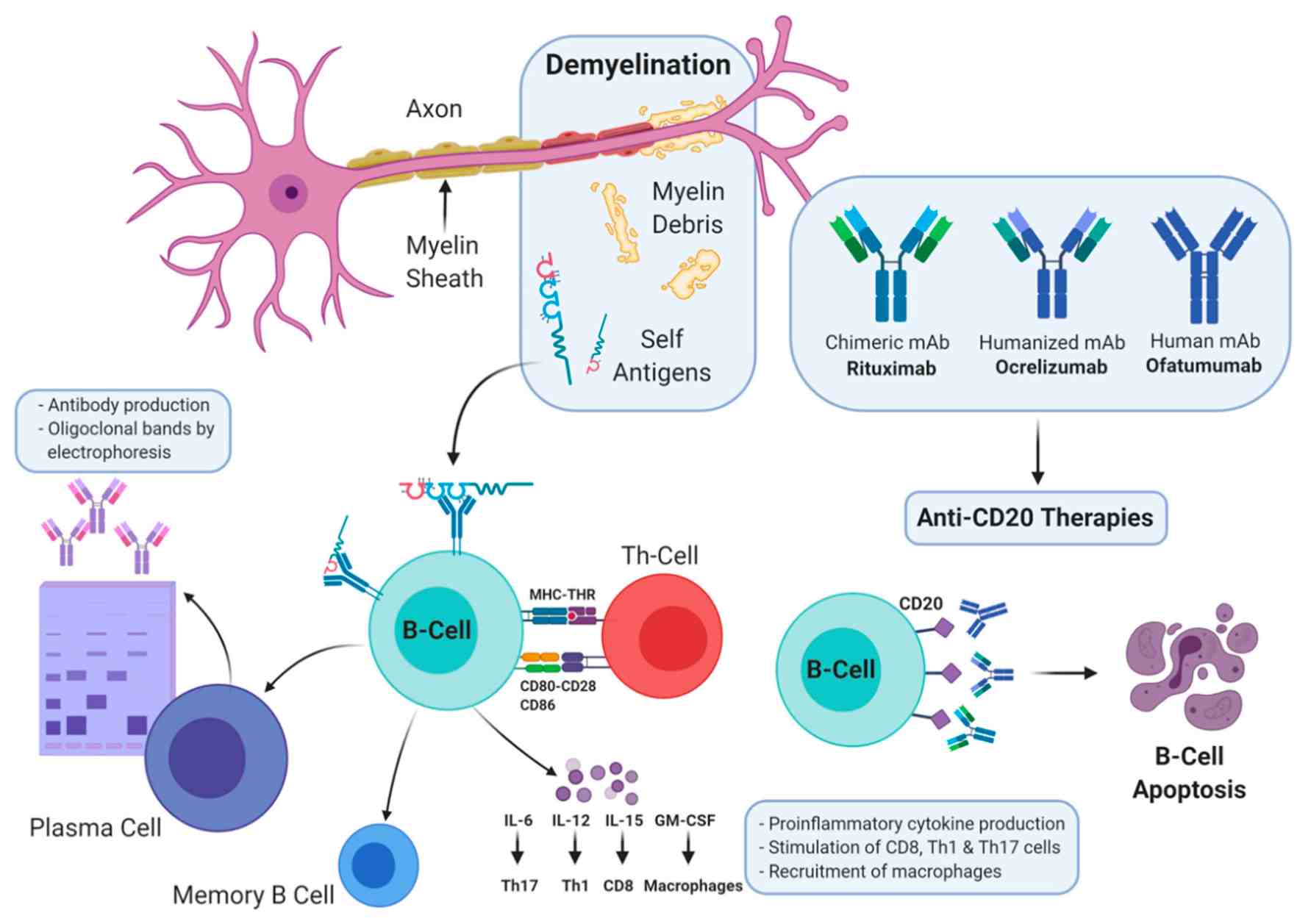 Fig.1 Three Anti-CD20 Antibodies.1,3
Fig.1 Three Anti-CD20 Antibodies.1,3
Diseases Targeted by CD20 Therapeutics
The CD20 antigen's specific expression profile on B cells makes it an invaluable target for treating a range of conditions where B-cell proliferation or function is dysregulated. Primarily, anti-CD20 drugs have revolutionized the treatment of B-cell malignancies, which are cancers arising from B lymphocytes. This includes various forms of non-Hodgkin's lymphoma (NHL), such as diffuse large B-cell lymphoma (DLBCL) and follicular lymphoma, as well as chronic lymphocytic leukemia (CLL). By targeting and eliminating these cancerous cells, CD20 therapeutics significantly improve patient outcomes and survival rates. Beyond oncology, the role of B cells in autoimmune disorders has also made CD20 a key target. In diseases like rheumatoid arthritis, where B cells contribute to inflammatory responses, anti-CD20 therapies help to modulate the immune system and reduce disease activity. The ability to selectively deplete these cells without affecting vital hematopoietic stem cells makes this a highly specific and effective therapeutic strategy.
Drug Development for CD20
Complement-related therapeutics can be broadly categorized by their mechanism of action, either activating complement-mediated cell killing or inhibiting the cascade to prevent unwanted inflammation or tissue damage. The following table details the principal categories of complement therapeutics.
|
Type of Drug
|
Mechanism of Action
|
Characteristics
|
|
Monoclonal Antibodies
|
Target a specific protein (e.g., CD20) to activate the complement cascade, leading to cell lysis (CDC).
|
Highly specific, can be engineered for enhanced efficacy and reduced immunogenicity.
|
|
Complement Inhibitors
|
Block the function of key proteins in the complement cascade (e.g., C3, C5, Factor D) to prevent downstream activation.
|
Used to treat diseases caused by complement overactivation; can be specific to certain pathways.
|
|
Bispecific Antibodies
|
Designed to bind to two different targets (e.g., CD20 and CD3), simultaneously redirecting immune effector cells to the target.
|
Offers enhanced cytotoxicity and is a new frontier in immunotherapy.
|
Published Data
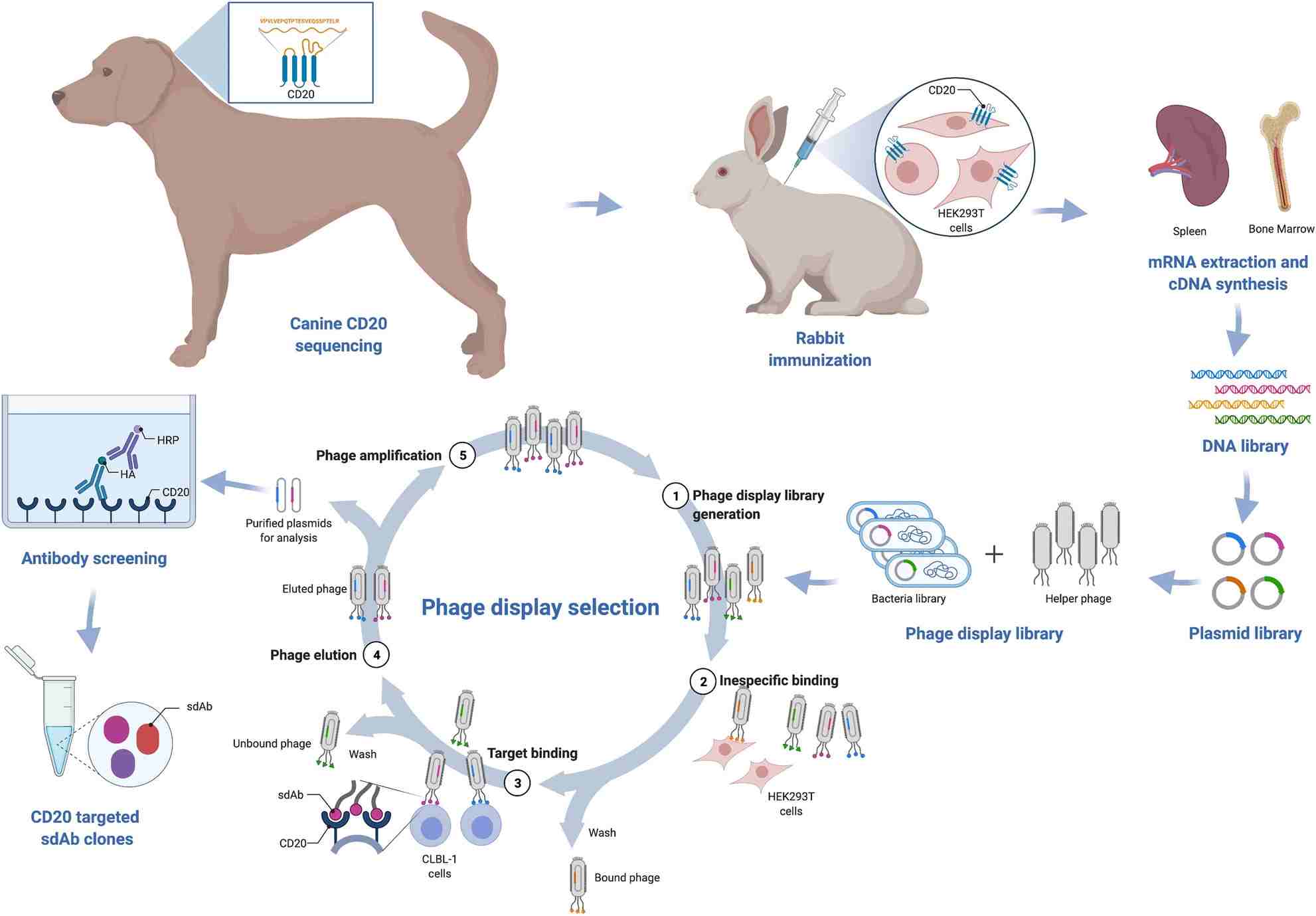 Fig.2 Methodology implemented for generating rabbit-originated sdAbs targeting canine CD20.2,3
Fig.2 Methodology implemented for generating rabbit-originated sdAbs targeting canine CD20.2,3
A recent study characterized canine CD20 as a therapeutic target for lymphoma, finding that both CD20 mRNA and protein were significantly overexpressed in B-cell lymphoma samples compared to healthy tissue. The research's success in confirming CD20's potential as a therapeutic target in veterinary oncology underscores its relevance for comparative oncology. Furthermore, the study successfully demonstrated a novel strategy for generating anti-CD20 monoclonal antibodies that are cross-reactive between humans and canines, utilizing a rabbit-derived single-domain antibody platform. These findings are significant not only for veterinary medicine but also for highlighting innovative approaches to antibody generation that can be applied to human therapeutic development, offering a unique platform for discovering and developing new therapeutic candidates with enhanced efficacy and broader applicability.
What We Can Offer?
To support your research and drug development efforts, we offer a comprehensive suite of products and services related to complement system therapeutics and CD20.
-
Custom Antibody Development: From antigen preparation to lead candidate selection, we provide end-to-end services for developing novel anti-CD20 antibodies.
-
Functional Assays: We offer a range of assays to evaluate the mechanism of action of your antibodies, including CDC, ADCC, and direct apoptosis.
-
Recombinant Proteins: We can provide high-quality recombinant CD20 protein and other complement-related proteins for your research needs.
-
Antibody Engineering: Our services include engineering antibodies for improved stability, reduced immunogenicity, and enhanced effector functions.
-
In vivo Efficacy Studies: We provide robust preclinical services to test the efficacy of your lead candidates in relevant animal models.
Workflow
01
Project Consultation & Design: Our expert team works with you to define the project scope, timeline, and deliverables, ensuring alignment with your strategic objectives.
02
Antigen Design & Preparation: We design and produce high-quality CD20 antigens, including full-length proteins or specific extracellular domains, to ensure robust immunogenicity and proper folding for antibody generation.
03
Antibody Generation & Screening: Using advanced platforms, we generate a diverse library of antibody candidates. High-throughput screening is then employed to identify clones with superior binding affinity and, most importantly, potent complement-activating properties.
04
Functional Characterization: We perform in-depth functional assays to confirm the antibody's ability to induce CDC, as well as other effector functions like ADCC. This step provides critical data on the antibody's mechanism of action.
05
Lead Candidate Selection: Based on comprehensive affinity, specificity, and functional data, we select the most promising lead candidates for further development, providing a clear rationale for each choice.
Why Choose Us?
Choosing a partner for drug development is a critical decision that impacts your project's trajectory. At Creative Biolabs, our distinct advantages stem from our experience and commitment to innovation.
Unmatched Expertise
With over 20 years of experience, our team possesses a deep understanding of the complement system and its role in disease. This allows us to design and execute projects that are both scientifically sound and strategically focused.
Comprehensive Platforms:
Our state-of-the-art platforms enable the efficient generation and screening of high-quality antibodies. We utilize cutting-edge techniques to identify candidates with superior binding affinity and functional properties.
Proven Success
Our capabilities have been demonstrated through numerous successful projects, with data published in peer-reviewed journals. This Published Data underscores our ability to deliver reliable and reproducible results that advance therapeutic pipelines.
Tailored Solutions
We understand that every project is unique. Our services are not one-size-fits-all; we offer flexible, customizable solutions designed to meet your specific research goals and budget.
Access the Creative Biolabs Benefit – Request a Quotation Now
FAQs
Q: Why is targeting CD20 a strong therapeutic strategy?
A: Targeting the CD20 antigen is highly effective because it is expressed on most B-cell lymphomas and other B-cell related diseases, but is absent on hematopoietic stem cells. This allows for specific depletion of the cancerous or problematic B cells while preserving the stem cell pool, enabling the regeneration of a healthy B-cell population after treatment.
Q: How does the complement system contribute to the therapeutic effect?
A: The complement system is a powerful mechanism for eliminating target cells. When an anti-CD20 antibody binds to a cell, it can activate the classical complement cascade, leading to the formation of pores in the cell membrane and subsequent cell death. This is known as complement-dependent cytotoxicity (CDC) and is a key mode of action for many effective anti-CD20 drugs.
Q: What are the key factors in developing a potent complement-activating antibody?
A: Several factors are crucial, including the antibody's isotype (e.g., IgG1), its ability to bind to the complement protein C1q, and its capacity to efficiently cluster the CD20 molecules on the cell surface. This clustering is vital for initiating a robust complement response. Our development service focuses on screening for these characteristics.
Q: What if I already have an antibody? Can you help with further characterization?
A: Absolutely. Our services are flexible. If you already have an antibody candidate, we can assist with a range of functional and structural characterization services, including in-depth CDC assays, epitope mapping, and affinity measurements to provide a more complete picture of its potential.
Q: How do you ensure the quality and reproducibility of your service?
A: We follow rigorous quality control standards at every stage of the development process. Our experienced scientists utilize validated protocols and state-of-the-art equipment to ensure the highest level of data integrity and reproducibility. All our reports are transparent and include detailed methodologies and raw data.
Creative Biolabs is your trusted partner in developing potent and specific anti-CD20 therapeutic antibodies. We offer a comprehensive suite of services, from initial project design to lead candidate characterization, leveraging our extensive experience and advanced platforms to help you accelerate your project from concept to clinic. Our focus on activating the complement system ensures your antibodies possess the power to effectively combat disease.
Featured Services
Feature Products
Click Here to Explore Our Advanced Complement Therapeutics Platform
References
-
Florou, Despoina et al. "Anti-CD20 Agents for Multiple Sclerosis: Spotlight on Ocrelizumab and Ofatumumab." Brain Sciences vol. 10,10 758. 20 Oct. 2020, https://doi.org/10.3390/brainsci10100758
-
Dias, Joana N R et al. "Characterization of the canine CD20 as a therapeutic target for comparative passive immunotherapy." Scientific Reports vol. 12,1 2678. 17 Feb. 2022, https://doi.org/10.1038/s41598-022-06549-1
-
Distributed under Open Access license CC BY 4.0, without modification.
For Research Use Only.
Related Sections:

 Fig.1 Three Anti-CD20 Antibodies.1,3
Fig.1 Three Anti-CD20 Antibodies.1,3
 Fig.2 Methodology implemented for generating rabbit-originated sdAbs targeting canine CD20.2,3
Fig.2 Methodology implemented for generating rabbit-originated sdAbs targeting canine CD20.2,3
